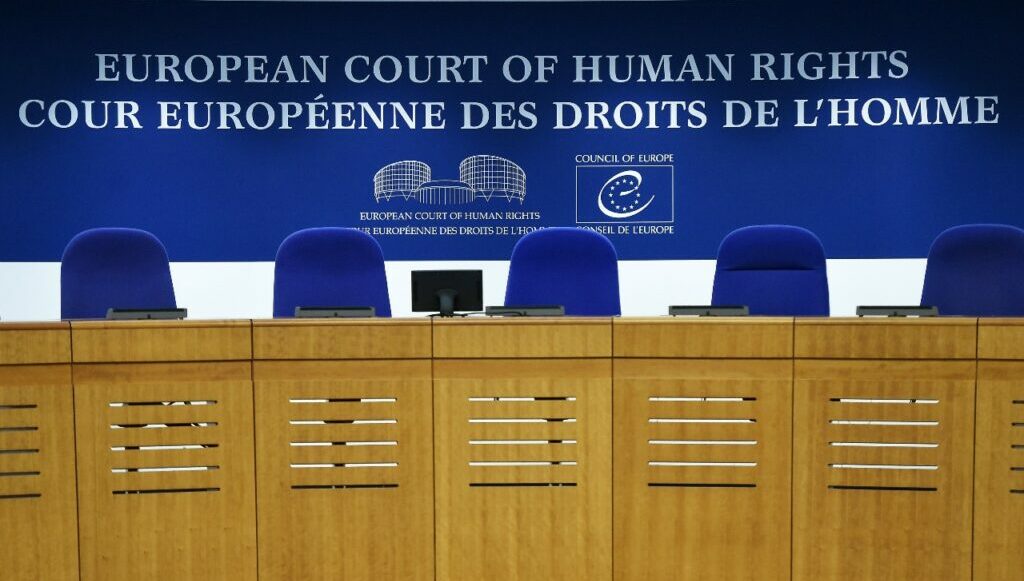The European Court of Human Rights (ECtHR) ruled on Tuesday that Turkish authorities violated the European Convention on Human Rights (ECHR) by not allowing prison visits on weekends as weekday visits conflicted with children’s school schedule and interfered with prisoners’ family life, deciding that Turkey was to pay each of the 19 applicants 1,500 euros in non-pecuniary damages.
According to the facts provided by the ECtHR on the case titled “Subaşı and Others v. Türkiye,” the applicants were “remand and convicted prisoners held at various institutions across the country.”
Saying that Turkey’s laws gave prisoners the right to be visited once a week, the ECtHR stated that the applicants’ respective prison administrations did not allow visits on the weekends, citing overcrowding, a shortage of staff and security concerns as the reasons for the decision.
“All the applicants had school-age children and complained that weekly visits organised only on weekdays and during working hours prevented them from seeing their children, who had an obligation to attend school,” the Strasbourg court said.
All of the applicants, with two exceptions, unsuccessfully challenged the restriction. In addition, two petitioners unsuccessfully challenged the prison administration’s decision to prohibit weekend telephone calls.
“Although the applicants had been able to receive some visits from their children on weekdays they had not been able to make full use of their entitlement to weekly visits from their children owing to conflicts with school schedules, which amounted to an interference with the right to respect for family life,” the ECtHR said, adding that prison administrations had the discretion to determine the days of the visits, provided that they were held once a week.
The ECtHR noted that the applicants had pointed out “the practical difficulties for their school-age children in visiting them on weekdays, including the long journey those visits entailed, given that the detention facilities had been a considerable distance from their homes,” complaining of “the negative effects of a prolonged lack of communication with their children on their family life.”
According to the court, the prison administrations needed to make “a concrete assessment of how many prisoners had those specific needs or whether any alternative means of facilitating communication between imprisoned parents and their children had been possible.”
“Furthermore, the economic burden on the prison administrations of conducting the visits at weekends had been described in vague terms and no consideration had been paid to the fact that permitting visits only on weekdays and during working hours had been very restrictive and burdensome in terms of maintaining the relationships between imprisoned parents and their children,” the court said.
The ECtHR said that Article 8 of the ECtHR required states to consider “the interests of the prisoner and his or her family members and to evaluate them not in terms of broad generalities but in application to the specific situation.”
“In using their discretionary power to determine the days of the weekly visits, the prison administrations had made their decisions solely on the basis of considerations relating to the capacity of the prisons rather than the prisoners and their relationships with their children,” the court said.
Saying that the domestic courts and Turkey’s Constitutional Court dismissed the applicants’ appeals without considering whether the legal framework complied with the ECHR, the Strasbourg court said Turkey’s laws, as applied in the current case, had not provided sufficient protection against arbitrary interference with prisoners’ “right to respect for family life,” as required by the ECHR.
The panel of judges unanimously ruled that Turkey violated the applicants’ rights by not allowing prison visits on weekends and by prohibiting phone calls on weekends.
According to the ECtHR’s press release, the applicants are 19 Turkish nationals who were in various detention facilities at the time of the events, either awaiting trial or appeal or who had been convicted of terrorism-related offenses in connection with an attempted coup on July 15, 2016.
Following the coup attempt, the Turkish government declared a state of emergency and carried out a massive purge of state institutions under the pretext of an anti-coup fight. More than 130,000 public servants, including 4,156 judges and prosecutors, as well as more than 24,000 members of the armed forces were summarily removed from their jobs for alleged membership in or relationships with “terrorist organizations” by emergency decree-laws subject to neither judicial nor parliamentary scrutiny.
A total of 319,587 people have been detained and 99,962 arrested in operations against supporters of the Gülen movement since the coup attempt, Turkey’s Interior Minister Süleyman Soylu said in November.
The Turkish government and President Recep Tayyip Erdoğan accuse the Gülen movement, inspired by the views of Turkish cleric Fethullah Gülen, of masterminding the failed coup and has designated the group as a terrorist organization. The movement denies involvement in the coup attempt or any terrorist activity.
Since 2016, the victims of the post-coup crackdown have flooded the top European human rights reviewing body with applications.
Victims accuse the court of not expeditiously processing their applications or of issuing rulings in favor of the Turkish government in some cases.
In addition to the thousands who were jailed, scores of other Gülen movement followers had to flee Turkey to avoid the government crackdown.
Some of these people had to take illegal and risky journeys in dinghies to Greece because their passports had been revoked by the government.

